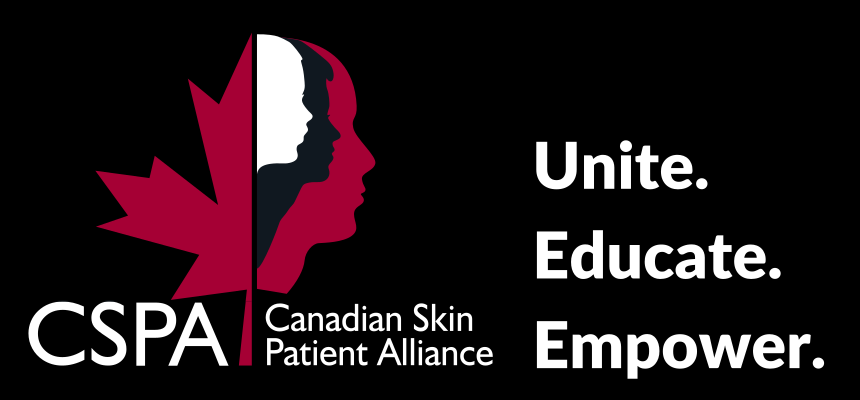Diagnosis
Psoriasis is usually diagnosed based on the appearance of the skin lesions (a clinical diagnosis). Sometimes, a skin biopsy may be required to rule out other causes of a rash.1
Treatment
Psoriasis is a chronic (long-lasting, persistent) disorder which may improve or worsen over time. There is no cure at this time. However, treatments may be used very effectively to decrease signs and symptoms.1
There are several types of treatment available for people with psoriasis which include:
Topical medications8
- Topical corticosteroids (creams, ointments or lotions) are recommended for plaque psoriasis. They are recommended as first line for mild psoriasis.9
- Milder steroid creams may be used in the skin folds (where skin rubs together).
- Other topical agents include vitamin D analogs, retinoids, and calcineurin inhibitors that can be used alone or in combination with steroids.8
- Other topical treatments like moisturizers with or without salicylic acid can be used alone or in combination with steroids.
Ultraviolet (UV) Radiation: Phototherapy
- In summer months or on sunny winter vacations, individuals often notice improvement of psoriasis with sun exposure.
- Different types of UV radiation treatment, most commonly narrow band UVB,10 may be available at your dermatologist’s office or at a specialized phototherapy centre. In some places, home phototherapy is available.
- It is important to note that therapeutic phototherapy is different from tanning beds, which are not recommended. Tanning beds emit mostly UVA radiation which is not effective for psoriasis. The use of tanning beds is associated with an increased risk of skin cancer - therapeutic narrowband UVB is not.
Systemic medications (oral medications)13
- Methotrexate may be used to treat moderate to severe psoriasis in adults, including plaque psoriasis, erythroderma, generalized pustular psoriasis, and palmoplantar psoriasis.
- Methotrexate may also be given as an intravenous, intramuscular, or subcutaneous injection.
- Acitretin is an oral retinoid that may be used for moderate to severe psoriasis in adults.
- Apremilast may be used to treat moderate to severe psoriasis in adults.
- Cyclosporine may be used to treat severe psoriasis, and can also be used for erythrodermic, generalized pustular psoriasis, and palmoplantar psoriasis. Cyclosporine is not recommended for longterm use.
Biologics 14
Biologics, which target the individual components of the immune system, work to block the molecules that contribute to inflammation: interleukin 23 (IL-23), interleukin 12/23 (IL-12/23), interleukin 17 (IL-17), and TNF (tumour necrosis factor). They are generally reserved for people who have not responded to other treatments, due to their high cost. However, biologics may have fewer side effects than cyclosporine, methotrexate, and acitretin. They can be very effective as a treatment for moderate to severe psoriasis.
Biologics include:
- TNF-alpha inhibitors (etanercept, infliximab, adalimumab, certolizumab)
- IL-12/IL-23 inhibitors (ustekinumab)
- IL-17 inhibitors (secukinumab, ixekizumab, brodalumab)
- IL-23 inhibitors (guselkumab, risankizumab)
For the treatment of women of child-bearing potential, TNF-alpha inhibitors and IL-12/IL-23 inhibitors have not shown negative maternal-fetal outcomes.15 Data for IL-17 and IL-23 inhibitors is currently limited. All biologics are likely safe during breastfeeding.
Alternative medicines8
Due to lack of evidence or conflicting evidence there are no current recommendations for alternative therapies, including:
- Diet/dietary supplements
- Mind/body interventions (stress reduction, meditation, hypnosis)
- Herbal therapies (Aloe Vera and St. John’s Wort)
- Traditional Chinese Medicine
Treatments available for children with psoriasis include16:
- Calcipotriol ointment with or without topical steroids. 17
- If psoriasis is resistant treatment with creams and ointments narrow band UVB phototherapy may be helpful if it is accessible. Methotrexate may be used when topical treatment and phototherapy have not been successful.
- Etanercept, adalimumab, and ustekinumab are biologics approved in Canada for the treatment of psoriasis in children.18
*All information on medical treatments on this site is provided as an overview only. For a complete list of benefits, side effects, warnings and precautions, read the product’s package insert and consult your doctor or a pharmacist.
**If you are considering an alternative or complementary therapy, discuss it with your doctor first, and always be sure to keep your doctor up to date about any vitamins, supplements, or other forms of alternative treatment you are taking. Like any medication, alternative therapies can interact with other medications/treatments and may have side effects of their own. Remember that “natural” does not necessarily mean “safe.”











